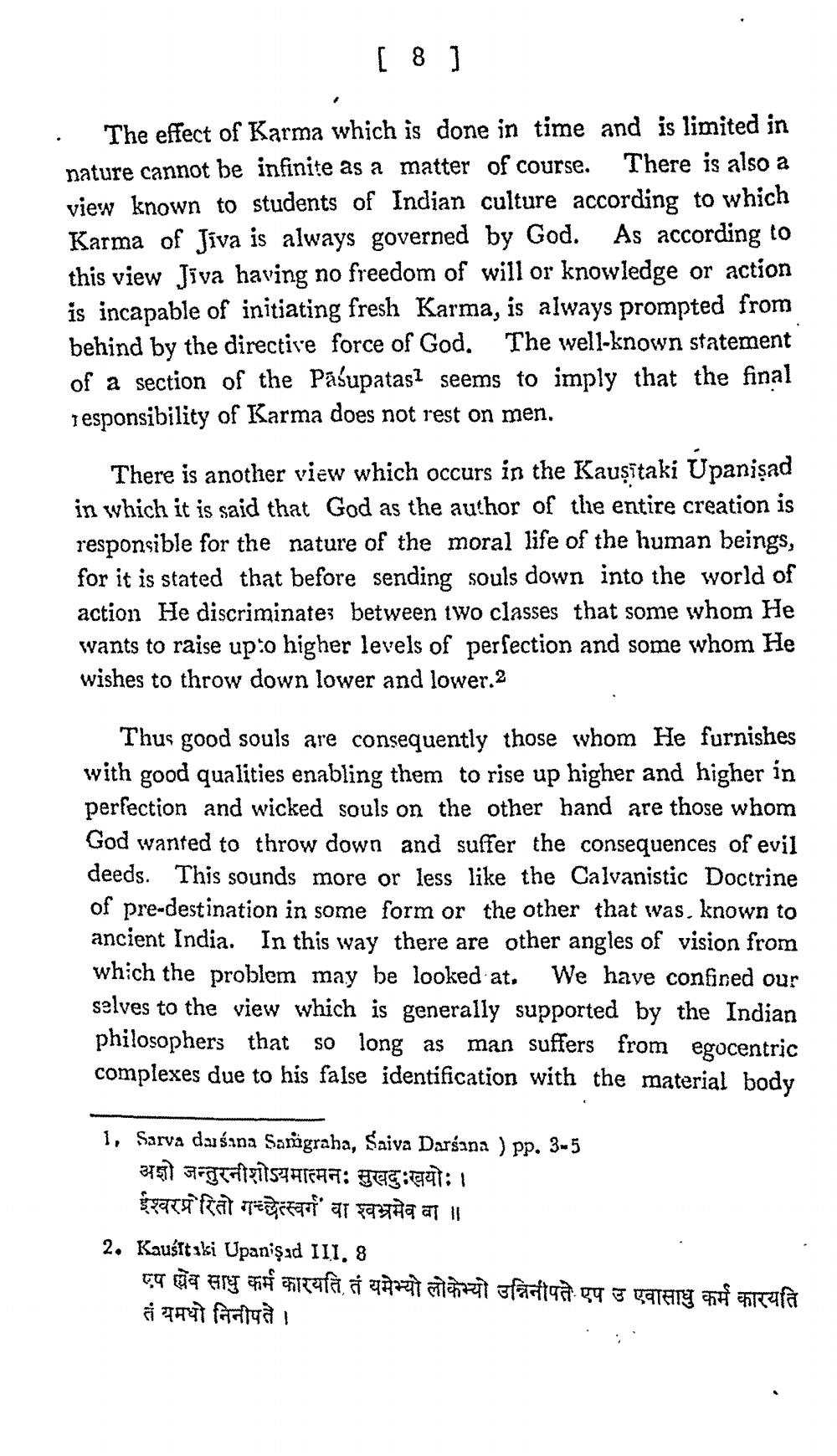________________
[ 8 ]
· The effect of Karma which is done in time and is limited in nature cannot be infinite as a matter of course. There is also a view known to students of Indian culture according to which Karma of Jiva is always governed by God. As according to this view Jiva having no freedom of will or knowledge or action is incapable of initiating fresh Karma, is always prompted from behind by the directive force of God. The well-known statement of a section of the Pasupatası seems to imply that the final zesponsibility of Karma does not rest on men.
There is another view which occurs in the Kausstaki Upanişad in which it is said that God as the author of the entire creation is responsible for the nature of the moral life of the human beings, for it is stated that before sending souls down into the world of action He discriminates between two classes that some whom He wants to raise up:0 higher levels of perfection and some whom He wishes to throw down lower and lower.2
Thus good souls are consequently those whom He furnishes with good qualities enabling them to rise up higher and higher in perfection and wicked souls on the other hand are those whom God wanted to throw down and suffer the consequences of evil deeds. This sounds more or less like the Calvanistic Doctrine of pre-destination in some form or the other that was, known to ancient India. In this way there are other angles of vision from which the problem may be looked at. We have confined our selves to the view which is generally supported by the Indian philosophers that so long as man suffers from egocentric complexes due to his false identification with the material body
1, Sarva daśana Sangraha, Saiva Darśana ) pp. 3-5
अशो जन्तुरनीशोऽयमात्मनः सुखदुःखयोः ।
ईश्वरप्रोरितो गच्छेत्स्वर्ग वा श्वभ्रमेव वा ॥ 2. Kausstaki Upanişad III. 8
एप व साधु कर्म कारयति तं यमेभ्यो लोकेभ्यो उन्निनीपतेः एप उ एवासाधु कर्म कारयति तं यमधो निनीपते।




